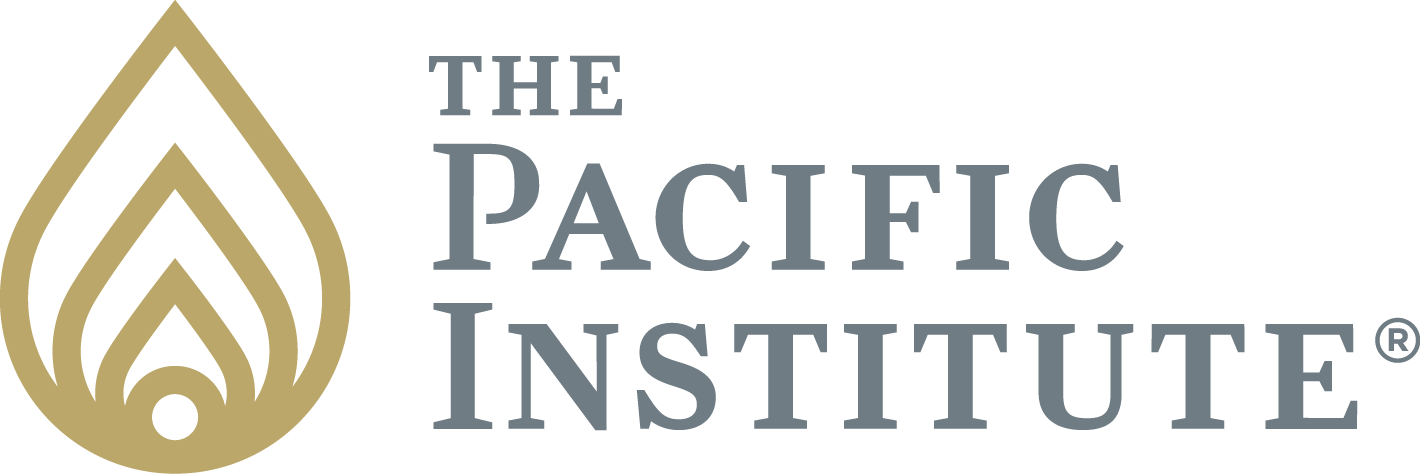Enhancing Strategic Decision-Making with Executive Leadership Coaching
Written by The Pacific Institute
| May 15, 2025

Life moves fast when the average adult makes around 35,000 decisions a day.
Yep, you heard that right. Thirty-five thousand decisions. In one day. No wonder some of us feel exhausted without knowing why!
Most of these decisions are small: what to eat for breakfast, what to pack for lunch, whether the red shoes go with your outfit. But sometimes, you have to make decisions with major impact—especially if you’re a business executive.
As an executive, you may decide everything from which software to buy to how to restructure the whole organization—often on tight timelines. But even with all your intelligence, experience, and accomplishments, you’re still human—and making tough decisions is still challenging.
Most of the barriers to good decision-making come from deep-rooted habits that are hard for anyone to fight. Fortunately, executive leadership coaching can help you overcome them so you make a good call on the tens of thousands of decisions you face every day.
How Mindsets Harm Decision Making
Starting in childhood, we develop mindsets that help us make most decisions on autopilot, a crucial trait for getting through those thousands of choices. But many of these instincts end up harming our decision-making abilities in the long term and preventing the kind of growth mindset and leadership skills we need if we someday wish to head up a team or company.
One of the most common examples of this is the fear of failure. Our instincts often tell us to avoid decisions that might lead to failure, but a fear of failure can actually prevent success. It holds us back from taking healthy risks. For an executive, that could mean rejecting an innovative new strategy.
On the other side of the coin, many people tend toward short-term thinking, meaning they’re more interested in short-term rewards than long-term growth. This can lead us to make decisions that are too risky, like investing in a startup that’s growing fast but doesn’t have a long-term plan for profitability.
Resistance to change is another common hurdle to good decision-making. Nearly everyone, to some extent, rejects change in favor of the comfortably familiar. But if an executive fails to make strategic changes, the organization stagnates. Change—and the discomfort it brings—are necessary for growth.
Each of these examples of leadership and decision-making pitfalls are things we have all, at some point in our lives, dealt with. They’re natural human tendencies our brains are hardwired for. Breaking free of them is not easy, but for executives, it’s necessary.
A Growth Mindset and Leadership
The most positive mindsets for executives to have are those that support personal and professional growth, healthy risk-taking, and the ability to quickly bounce back when setbacks occur.
These traits are all part of a “growth mindset”—a way of thinking that believes everyone can grow and learn if they put in the work.
This mindset can counter many of the most common barriers to good decision-making, like fear of failure. Because, when you accept that you’re capable of working hard until you succeed, failure is just a bump in the road.
A growth mindset also goes hand-in-hand with emotional intelligence and self-awareness. Someone with a growth mindset can accept themselves for who they are, strengths and weaknesses alike. They have both the humility to take advice and the confidence to know when their decisions are sound.
By adopting a growth mindset, leaders can make decisions that aren’t colored by fear, insecurity, or impulsiveness. Instead, their decisions are built with the understanding that, given the right amount of effort and strategy, anything is possible.
It’s easy to see why a growth mindset and leadership are a winning combination, but much harder to attain yourself. After all, many of the hurdles holding us back from this mindset are the result of natural, instinctive patterns of thinking. How can we break free of our instincts?
The answer is with the aid of expert executive leadership coaching, which can help you understand your own mind so you can master it.
What Executive Leadership Coaching Can Do
The first step in developing the positive habits of a growth mindset is discovering the source of your negative habits. Executive leadership coaching can show you how to do this.
Leadership coaches help you notice when negative thoughts pop up, threatening to fuel your worst impulses, and give you tools for stopping those thoughts in their tracks.
Once negative thought patterns are broken down, more positive patterns can be built in their place. Skills that executive leadership coaching can teach you to build those bridges include:
- The ability to mentally reframe difficult problems. Pausing to reevaluate challenges helps you see problems as opportunities, not sources of distress.
- Clarity under pressure. Many negative thought patterns can cause stress or panic in difficult situations. A leadership coach can help you stop that mental noise and remain calm.
- Mental agility and adaptability. Fear of failure and discomfort with change can make unexpected developments feel catastrophic, but becoming cognitively agile and adaptable makes it possible to handle sudden changes.
- Long-term thinking and planning. When you’re no longer desperate for short-term wins, you can plan for the long term with clear foresight and confidence.
- Openness to innovative ideas. When you’re feeling change resistant, you instinctively dismiss new ideas. Breaking down those instincts makes you more willing to hear out unique, competitively differentiating proposals.
Each of these skills is part of a growth mindset, and they’re all examples of leadership traits that contribute to the ability to make positive, well-informed, strategic decisions that help an organization grow.
Start Your Journey Toward Better Decision Making
Few people naturally have all the skills necessary for powerful decision-making, but anyone can cultivate them with the support of executive leadership coaching.
Of course, not every coach is equally helpful. To get results, you need one that uses science-backed methods with a proven success rate.
For example, The Pacific Institute’s coaches use mental technology based on behavioral and cognitive psychology to help you banish unwanted beliefs and habits. With a four-step method that can be adapted to anyone’s unique challenges, our coaches can guide you through your mental barriers and toward sound decision-making.
Begin your journey toward better decision-making today by downloading our free ebook, The Keys to Decision Making.





